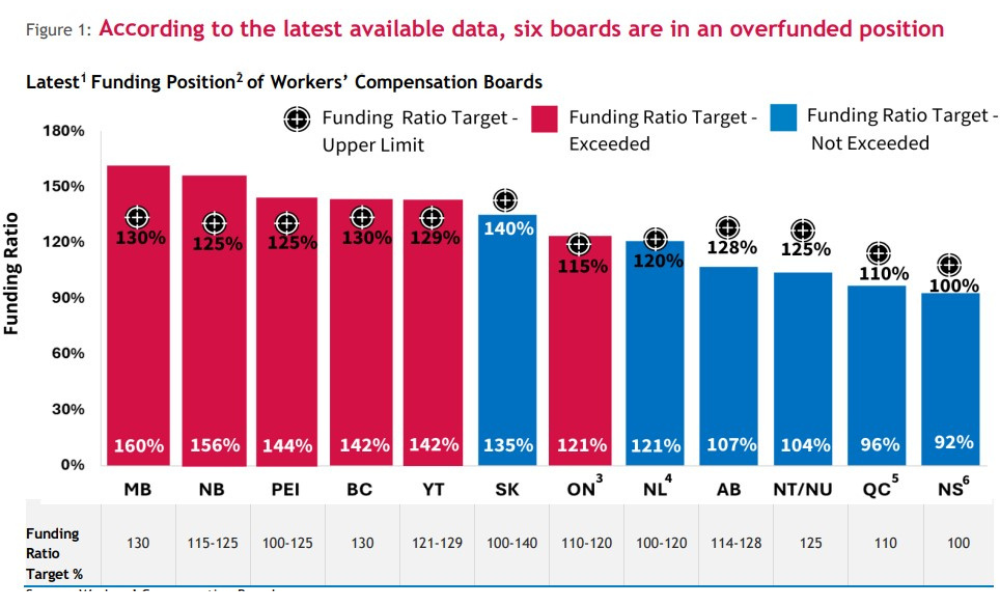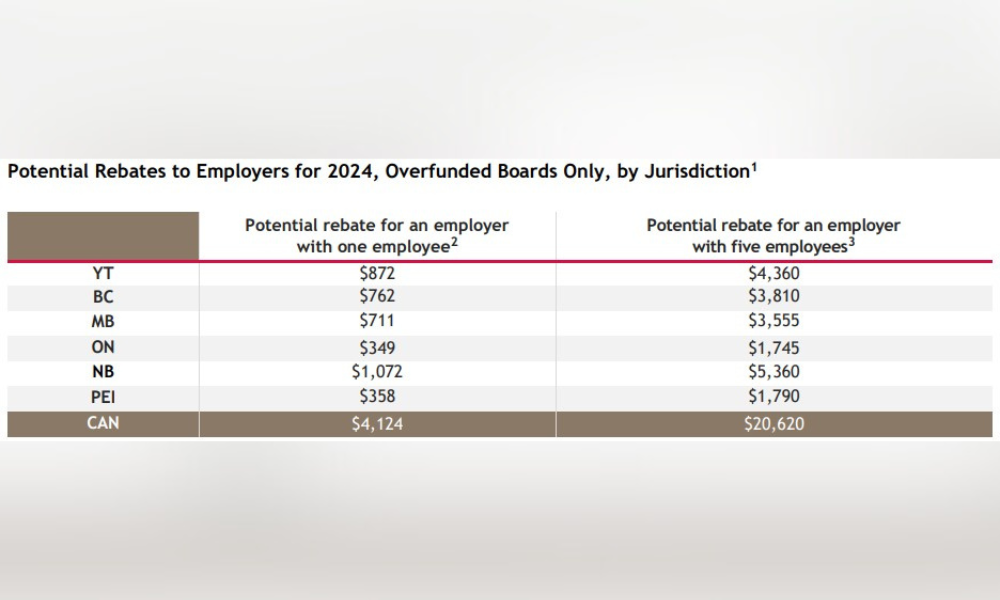CFIB calls on boards to issue rebates from 'huge surpluses' to employers

There are six “overfunded” workers’ compensation boards (WCBs) across Canada that are holding onto $4.9 billion in excess funds, and these should be distributed to small businesses, according to the Canadian Federation of Independent Business (CFIB).
These WCBs are in Manitoba, British Columbia, Ontario, New Brunswick, Prince Edward Island, and the Yukon.
Manitoba's board is the most overfunded, at 160%, when its own funding target is 130%, according to the report.
"Little has changed since our report last year, and the same five boards – with a new addition of Ontario – are sitting on huge surpluses they don't need while small businesses struggle with lower consumer demand and rising costs on all levels. These surplus funds would allow business owners to pay down their debt, offset the elevated costs of doing business, invest in their employees through health and safety and other measures, and grow their business," said Marvin Cruz, CFIB's director of research.
"Overfunded boards are in a strong financial position to issue rebates to small businesses without coming close to affecting worker payouts."

Source: Canadian Federation of Independent Business (CFIB)
A previous ADP report noted that 53% of small employers in Canada are feeling negatively about the economy, including 19% who cite the current economy as a primary source of stress.
If the WCBs would distribute the excess funds to small employers, these businesses would have more cash on hand, said the CFIB.

Source: Canadian Federation of Independent Business (CFIB)
In recent years, boards have distributed surplus funds to employers, with Manitoba returning $118 million in 2024, Prince Edward Island $21 million in 2023, and Ontario $1.2 billion in 2022, noted CFIB. Looking forward, Manitoba anticipates rebates to employers through 2026 with the goal of reducing their funding ratio to the funding target of 130%.
However, Ontario is the only province that legislates the return of WCB surplus funds to employers, including mandatory rebates when the Workplace Safety and Insurance Board (WSIB)'s funding level is at least 125%.
“For the benefit of both employers and employees, it is critical that workers’ compensation insurance operates effectively and with reasonable costs. Boards must ensure a balanced and fair approach to overfunding,” said CFIB in its report titled Funding Fairness: State of Workers’
“Rather than accumulating and sitting on large surpluses, boards should return these fuds to the eligible businesses that paid them and could put them to much better use.”
CFIB recommends that provincial and territorial governments return surplus funds to employers or lower employer premiums where the funding ratio exceeds the board’s funding target, with a stronger preference for a rebate to eligible employers.
Governments must also legislate the return of WCB surplus funds to eligible employers, and implement mandatory distribution policies, so surplus funds are returned on a regular basis.
They must also enhance WCB transparency and accessibility by setting dates to publicly release board funding levels, according to the employer group.
There is low optimism among business executives when it comes to Canada’s economic outlook this year, according to a PwC report released early in 2024.






